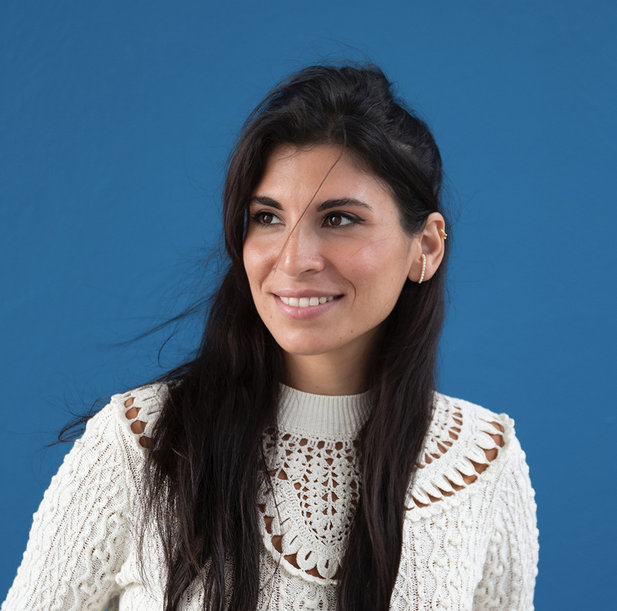Veni grant for ‘Aerial Robots in a Tangible World: Drones with the Sense of Touch Act upon Their Surroundings’
Five promising researchers from TU Delft's Faculty of Aerospace Engineering have been granted Veni funding by the Dutch Research Council (NWO). This funding, totaling EUR 280,000 for each recipient, will empower the awardees to advance their individual research concepts over the course of the upcoming three years. Today we introduce Salua Hamaza.
Research
“Nowadays, drones are mainly used as 'eyes in the sky'. Yet, they are the only robots incapable of physical contact. While it is exactly through physical contact that we, humans, manipulate objects and the surroundings to create, and give shape, to our world.
To utilise the full potential of drones, they can be provided with the sense of touch and facilitate a number of tasks for our society: from maintaining infrastructure assets at height, to helping ecologists with data gathering in vast forest areas, to exploring new terrains and environments inaccessible to humans. To achieve this, I will implement new designs of aerial robots that exploit mechanical compliance to achieve physical interaction with their surroundings. Such designs will be complemented by novel interaction control algorithms that rely on richer information on the sense of touch, so to realise safe and reliable operations in the real world. Thanks to this project, drones will be able to finally deliver a tangible impact in our society.”

Drones' autonomy
"This Veni grant delves deeper into a subject that has increasingly captured the attention of the global robotics community – aerial manipulation. Since several years, researchers have solely focused on control theory to improve performance of flying robots interacting with objects or surfaces. Still today interacting drones are confined to the lab. In this project, I will exploit intelligent design to improve drones' autonomy during airborne tasks, and make them more 'compliant' to the uncertainties of the real world. Then, I will combine design with new control methods that account for passivity.”
Design and control
“The ultimate aim of this project is to demonstrate that design and control can (and should) be tightly paired to improve flying robots' capabilities and autonomy. Often times roboticists are preoccupied with real-time behaviour, for which it is believed that complex control algorithms must behave efficiently. On the contrary, mechanical design has proved that ultra-fast responses can result without relying on complex control theory. They key of this project is to leverage mechanical compliance to handle unknown forces and disturbances experienced by drones in a passive way - software-free. For interaction tasks airborne, drones can acquire flexibility and versatility starting from the way they are designed.”
BioMorphic Intelligence Lab
“My team of PhD and MSc students at the BioMorphic Intelligence Lab works on novel designs and control methods that enhance the sense of touch and use it to improve autonomy, and to complete new tasks, never done before by drones. For example, we are very active in environmental monitoring applications for which we collaborate with biologists to gather physical samples of natural environments, or place ecology devices that monitor climate and biodiversity. Another area of interest is Space exploration, for which aerial robots with interaction capabilities are used to survey Martian terrains.”
Societal impact
“I firmly believe that interacting drones can deliver societal good and have a large undiscovered potential. As soon as we unlock interaction capabilities, we have access to a world of possibilities in which drones can help human activities in remote or hard-to-reach areas. For example, their use in ecology studies can unravel information on the long-term changes brought by climate and human activity. Also, they could aid harvesting and plant health monitoring for farmers in the AgriTech sector. This VENI will demonstrate the potential of interacting drones for Ecology and Space exploration missions with partners ESA ESTEC and Space4Good.”